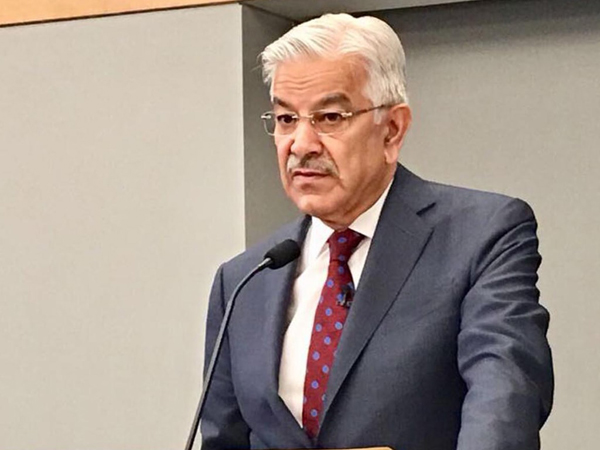 Defence Minister Khawaja Asif on Friday clarified that verdicts of proposed military courts could be challenged in civilian courts – high courts and the Supreme Court of Pakistan.
Defence Minister Khawaja Asif on Friday clarified that verdicts of proposed military courts could be challenged in civilian courts – high courts and the Supreme Court of Pakistan.
In an interview with a foreign TV channel, the defence minister said that all those miscreants who are tried and convicted by the military courts would have the right to challenge the verdict in the high and apex court. He made the remarks in view of the prevailing situation in the aftermath of the May 9 violent protests triggered by the arrest of Pakistan Tehreek-e-Insaf (PTI) Chairman Imran Khan.
The military’s top brass on May 15 vowed to try the protesters and their abettors under relevant laws, including the Pakistan Army Act and the Official Secrets Act, after PTI workers and supporters stormed military installations on May 9, which the army dubbed as “Black Day”.
Asif said that the “PTI miscreants” attacked public and government properties including military installations under a well-thought-out plan.
“Such actions are tantamount to waging a war against Pakistan. Those who attacked the military installations, military bases and residences of military personnel, their trials will be held under military courts according to the procedure given in the Constitution,” he added.
During the violent incidents in Rawalpindi, Mianwali, and Lahore on May 9, armed groups of PTI attacked military installations, the federal minister said.
“My leader [three-time prime minister Nawaz Sharif] and many people of my political party were arrested but we never did politics of violence. We have never attacked military and civilian installations on arrests.” The attackers on military and civilian installations, the defence minister said, were enemies of the country. “We have political differences, but that does not mean that the government and public properties should be attacked.” He went on to say that the coalition government is not making new courts and laws, but rather there were already laws existing to hold trials in such cases of violence against state installations.
The government, he further said, was trying to control the situation, as peace was restored in the cities and the situation would be normal in the next few days.